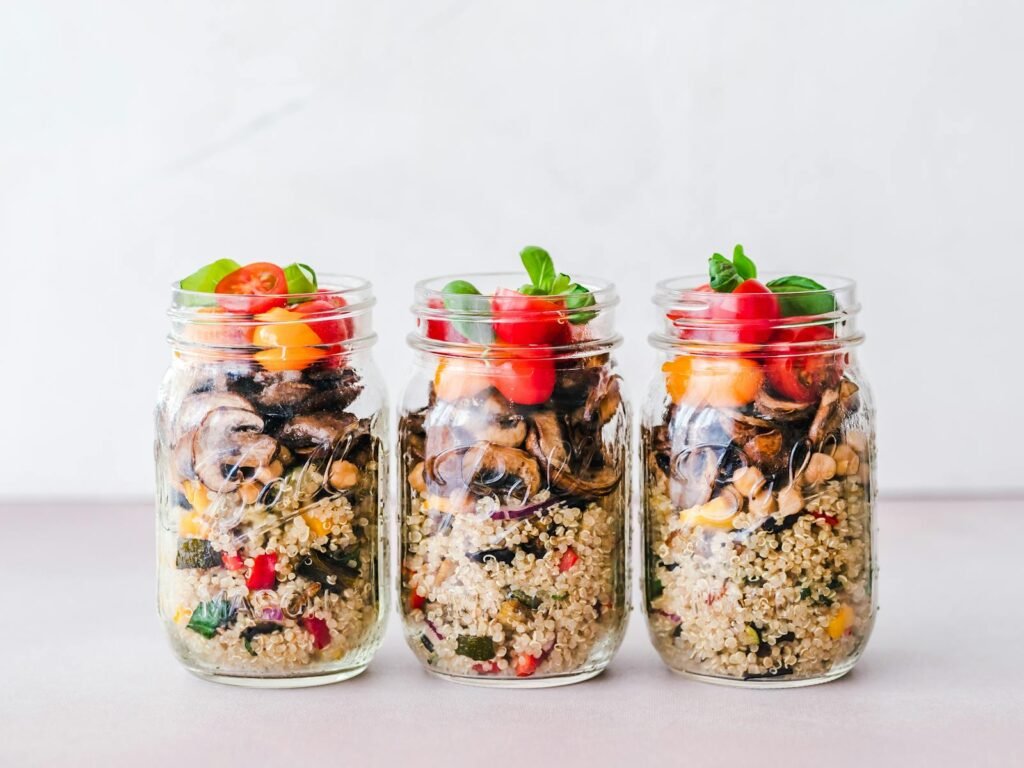PCOS can make getting pregnant harder. But don’t worry – there are vitamins that can help. These vitamins boost your chances of having a baby if you have PCOS.
Some of the best vitamins for PCOS fertility include inositol, fish oil, vitamin D, and vitamin B12. These vitamins can help your body work better and may improve your fertility. Inositol and PCOS treatment are evidence backed. It is especially good for PCOS. It can help your ovaries work better and make your periods more regular.
PCOS symptoms like irregular periods and weight gain can be tough. But taking the right vitamins can ease these issues. They may also help your overall health. Remember, it’s always best to talk to your doctor before starting any new vitamins. They can help you pick the ones that are right for you.
Understanding PCOS and Fertility
PCOS affects hormone balance and ovulation, which can make getting pregnant more difficult. Learning about these effects can help you manage your fertility journey better.
The Role of Hormones in PCOS
In PCOS, your body produces too many androgens, which are male hormones. This throws off the balance of other hormones like estrogen and progesterone. Your body may also not respond well to insulin, leading to higher insulin levels.
These hormone changes can cause:
- Irregular periods
- Weight gain
- Acne
- Excess hair growth
Hormone imbalances can make it harder for your ovaries to release eggs regularly. This is why PCOS often leads to fertility issues.
Impact of PCOS on Ovulation and Conception
PCOS can disrupt your ovulation cycle, making it harder to predict when you’re most fertile. You might ovulate less often or not at all. This is called anovulation.
When you don’t ovulate regularly, it’s harder to get pregnant. PCOS can also affect the quality of your eggs, which may lower your chances of conception.
Some ways PCOS impacts fertility:
- Irregular or missing periods
- Unpredictable ovulation
- Reduced egg quality
Managing PCOS symptoms through diet, exercise, and sometimes medication can help improve your fertility. Many women with PCOS do get pregnant with the right treatment and support.
Key Vitamins and Supplements for PCOS Fertility
Certain vitamins and supplements can help improve fertility for women with PCOS. These nutrients support hormone balance, egg quality, and overall reproductive health.
Inositol and PCOS Treatment
Inositol is a type of sugar that plays a key role in insulin function and egg quality. It is one of the best vitamins for PCOS fertility. There are two main forms used for PCOS: myo-inositol and D-chiro-inositol.
Myo-inositol helps your body use insulin better. This can lead to more regular periods and better egg quality. The typical dose is 2-4 grams per day.
D-chiro-inositol works with myo-inositol to balance hormones. It may help reduce testosterone levels and improve ovulation. A common ratio is 40:1 myo-inositol to D-chiro-inositol.
You can take inositol supplements separately or in combination. Look for products like Ovasitol that contain both forms in the right ratio.

Vitamin D and Calcium: Synergy for Reproductive Health
Vitamin D is also one of the best vitamins for PCOS fertility and pregnancy. Many women with PCOS have low vitamin D levels.
Getting enough vitamin D may help:
- Improve menstrual regularity
- Boost egg quality
- Support healthy pregnancy
The recommended dose is 1000-4000 IU per day. Your doctor can test your levels to find the right amount for you.
Calcium works with vitamin D to support bone and reproductive health. Aim for 1000-1200 mg of calcium daily from food and supplements.
Essential B Vitamins: Folate and Vitamin B12
B vitamins are the best vitamins for PCOS fertility and fetal development. Folate and vitamin B12 are especially important.
Folate helps prevent birth defects and supports egg quality. Look for supplements with the active form called methylfolate. A typical dose is 400-800 mcg per day.
Vitamin B12 works with folate to make DNA and red blood cells. It also supports ovulation. Most prenatal vitamins contain 2.6-5.2 mcg of B12.
Consider a B-complex supplement to get a range of B vitamins. This can help balance hormones and improve egg health.
Nutritional Strategies and Lifestyle Changes
Eating well and staying active can help manage PCOS symptoms and boost fertility. These changes can improve insulin levels and hormone balance in your body.
Diet and PCOS: Managing Insulin Resistance
A low glycemic index diet may help with PCOS. This means choosing foods that don’t cause big spikes in blood sugar. Good choices include:
- Whole grains like brown rice and oats
- Lean proteins such as chicken and fish
- Lots of colorful vegetables
- Healthy fats from nuts, seeds, and olive oil
Try to limit sugary foods and refined carbs. These can make insulin resistance worse.
Some women find that taking supplements like inositol or omega-3 fatty acids helps their PCOS symptoms. Talk to your doctor before starting any new supplements.
Weight Management and Physical Activity
Losing even a small amount of weight can improve PCOS symptoms for many women. This can help balance hormones and make periods more regular.
Regular exercise is key. Aim for at least 150 minutes of moderate activity each week. This could be:
- Brisk walking
- Swimming
- Cycling
- Dancing
Mix in some strength training too. This helps build muscle and can improve insulin sensitivity.
Remember, small changes add up. Start with short walks or gentle yoga if you’re new to exercise. The goal is to find activities you enjoy and can stick with long-term.
Beyond Vitamins: Other Supportive Supplements
Some supplements can help with PCOS fertility beyond just vitamins. These include omega-3 fatty acids and antioxidants like NAC. They work in different ways to support your body’s natural processes.
Omega-3 Fatty Acids: Benefits Beyond Heart Health
Omega-3 fatty acids can be helpful for PCOS. They come in three main types: ALA, EPA, and DHA. Fish oil is a good source of EPA and DHA. These fats may help reduce inflammation in your body.
Omega-3s might improve insulin sensitivity. This is important because many women with PCOS have insulin resistance. Better insulin function can help with hormone balance and fertility.
You can get omega-3s from eating fatty fish like salmon. If you don’t eat fish often, a supplement might be useful. Look for a high-quality fish oil supplement. Always check with your doctor before starting any new supplement.
NAC and Antioxidants: Combating Inflammation and Oxidative Stress
N-Acetyl Cysteine (NAC) is an antioxidant that may help with PCOS symptoms. It helps your body make glutathione, a powerful antioxidant. NAC might improve insulin sensitivity and reduce inflammation.
Oxidative stress can be higher in women with PCOS. This can affect egg quality and fertility. Antioxidants like NAC may help protect your eggs from damage.
Some studies suggest NAC might improve ovulation rates in women with PCOS. It may also help regulate menstrual cycles. As with any supplement, talk to your healthcare provider before using NAC.
Other antioxidants like vitamin C and E may also be helpful.
Frequently Asked Questions
Women with PCOS often have questions about vitamins and supplements that can help with fertility. These FAQs cover key nutrients, their effects on symptoms, and how they may improve reproductive health.
What nutritional supplements are suggested to enhance fertility among women with PCOS?
Vitamins for PCOS can play a big role in boosting fertility. Inositol, a type of B vitamin, is often recommended. It may help improve insulin sensitivity and egg quality.
Omega-3 fatty acids are another helpful supplement. They can reduce inflammation and support hormone balance. You might also consider taking vitamin D, as many women with PCOS have low levels.
Are there specific vitamins known to alleviate fatigue associated with PCOS?
Fatigue is a common problem for women with PCOS. B-complex vitamins, especially B12, can help boost energy levels. Iron supplements may also be useful if you have heavy periods or low iron levels.
Vitamin D can help too. It’s linked to better mood and energy. Always check with your doctor before starting new supplements.
How does folic acid impact fertility and weight management in the context of PCOS?
Folic acid is important for all women trying to get pregnant. For those with PCOS, it may have extra benefits. It can help reduce insulin resistance, which is common in PCOS.
This vitamin might also aid in weight management. Some studies suggest it can help reduce BMI in women with PCOS. Folic acid is key for preventing birth defects too.
Can inositol supplements play a role in regulating menstrual cycles for those with PCOS?
Yes, inositol can help regulate menstrual cycles in women with PCOS. It comes in two forms: myo-inositol and D-chiro-inositol. Both can be helpful.
Inositol and PCOS treatment are closely related. It may improve insulin sensitivity. This can lead to more regular periods. It might also boost ovulation rates, which is great for fertility.
What are the recommended approaches to managing unwanted facial hair through supplements for women with PCOS?
Dealing with excess hair growth can be tough. Some supplements may help. Saw palmetto is one option that might reduce unwanted hair.
Spearmint tea or supplements could also be useful. They may lower testosterone levels. This can slow hair growth over time. Remember, results take time and vary for each person.
In what ways might improved egg quality contribute to increased fertility for individuals with PCOS?
Better egg quality can boost your chances of getting pregnant. Supplements like Coenzyme Q10 can help improve egg quality in women with PCOS.
Antioxidants like vitamin C and E may also help by protecting eggs from damage. Better quality eggs are more likely to be fertilized and develop into healthy embryos.





